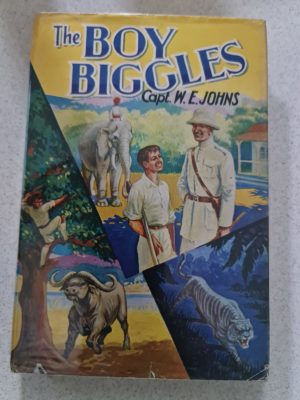C. S. Forester – Lieutenant Hornblower
This book is only available as an eBook.
Lieutenant Hornblower (published in 1952) is a Horatio Hornblower novel written by C. S. Forester. It is the second book in the series chronologically, but the seventh by order of publication.
The book is unique in the series in being told not from Horatio Hornblower’s point of view, but rather from Bush’s. This helped Forester to explain Hornblower’s unsuitable first marriage besides giving an objective view of Hornblower himself. This unusual narrative perspective also allows Forester to sustain a mystery, advanced hint by hint in the course of the novel, about how Captain Sawyer came to be injured—an event possibly witnessed by Hornblower.
“I recommend Forester to every literate I know.” –Ernest Hemingway
$3.99
+ Free ShippingPreface
Lieutenant Hornblower (published 1952) is a Horatio Hornblower novel written by C. S. Forester. It is the second book in the series chronologically, but the seventh by order of publication.
The book is unique in the series in being told not from Horatio Hornblower’s point of view, but rather from Bush’s. This helped Forester to explain Hornblower’s unsuitable first marriage besides giving an objective view of Hornblower himself. This unusual narrative perspective also allows Forester to sustain a mystery, advanced hint by hint in the course of the novel, about how Captain Sawyer came to be injured—an event possibly witnessed by Hornblower.
https://en.wikipedia.org/wiki/Lieutenant_Hornblower
Series Preface
Overview
Horatio Hornblower is a fictional officer in the Royal Navy during the Napoleonic Wars, the protagonist of a series of novels and stories by C. S. Forester. He later became the subject of films and radio and television programmes, and C. Northcote Parkinson elaborated a “biography” of him, The True Story of Horatio Hornblower.
Forester’s series about Hornblower tales began with the novel The Happy Return, published in 1937. Herein, Hornblower is a captain on a secret mission to Central America in 1808. Later stories fill out his career, starting with his unpromising beginning as a seasick midshipman. As the Napoleonic Wars progress, he steadily gains promotion as a result of his skill and daring, despite his initial poverty and lack of influential friends. After surviving many adventures in a wide variety of locales, he rises to become Admiral of the Fleet.
Inspirations
Forester’s original inspiration was an old copy of the Naval Chronicle that described the effective dates of the Treaty of Ghent. Two countries could be at war in one part of the world after a peace was obtained months before in another part because of the time required to communicate around the world. The burdens that this placed on captains far from home led Forester to invent a character struggling with the stresses of a “man alone”.
Many parallels exist between Hornblower and real naval officers of the period, notably Admiral Lord Horatio Nelson, Sir George Cockburn, Lord Cochrane, Sir Edward Pellew, Jeremiah Coghlan, Sir James Gordon, and Sir William Hoste. The actions of the Royal Navy at the time, documented in official reports and in the Naval Chronicle, provided much of the material for Hornblower’s fictional adventures.
The name ‘Horatio’ was inspired by the character in William Shakespeare’s Hamlet and chosen also because of its association with contemporary figures such as Nelson. The surname ‘Hornblower’ comes from Arthur Hornblow, a Hollywood producer who was a colleague and friend of Forester’s.
Frederick Marryat has been identified as ‘the father of the seafaring adventure novel’ from which all others followed, from C. S. Forester’s Horatio Hornblower to Patrick O’Brian’s Jack Aubrey and Stephen Maturin. Hornblower and the eponymous protagonist of Marryat’s novel Peter Simple both start their careers rather unpromisingly and without influential friends, but advance through hard work, honesty, and bravery. Both fight duels before their careers have properly started and both are taken prisoner early in their careers.
https://en.wikipedia.org/wiki/Horatio_Hornblower
The chronological order of the Hornblower books, as far as we can work out, is below:
- Midshipman Hornblower (1950)
- Lieutenant Hornblower (1952)
- Hornblower and the Hotspur (1962)
- Hornblower and the Crisis (1967)
- Hornblower and the Atropos (1953)
- The Happy Return (1937)
- Ship of the Line (1938)
- Flying Colours (1938)
- The Commodore (1945)
- Lord Hornblower (1946)
https://www.orderofbooks.com/characters/horatio-hornblower/







Reviews
There are no reviews yet.